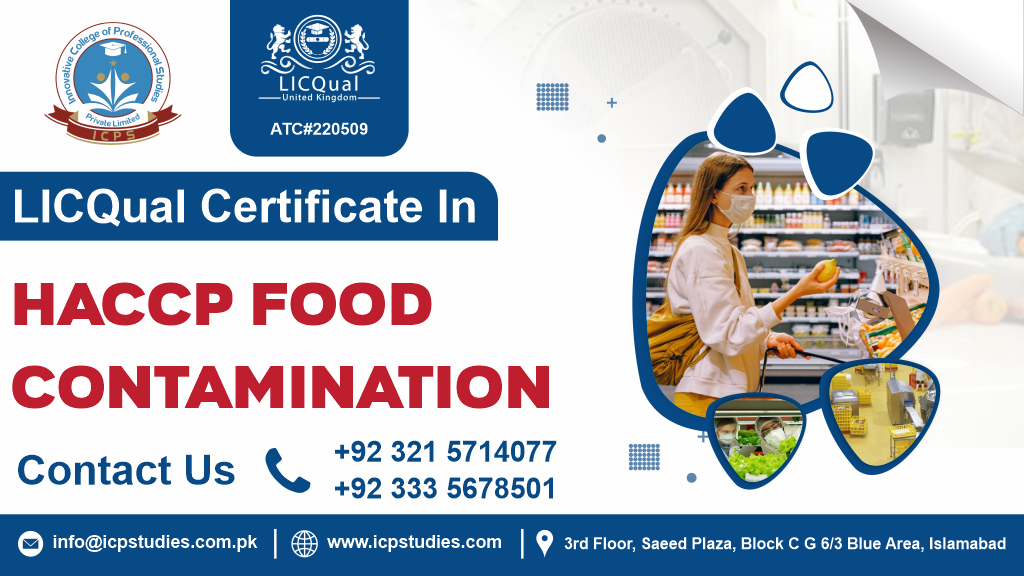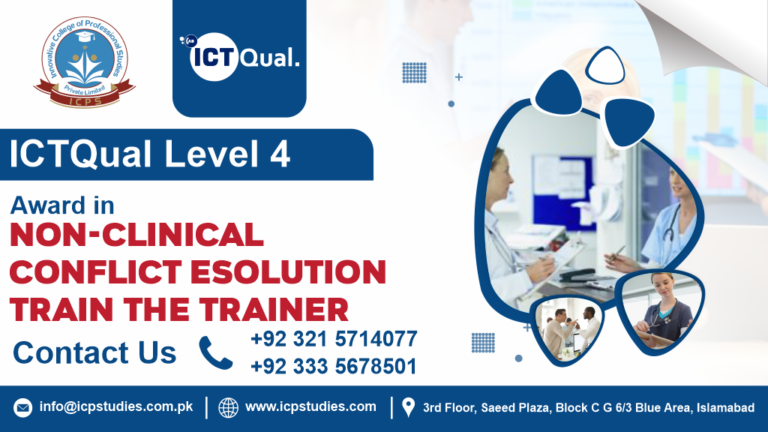Food safety is a critical concern in today’s globalized world, where the journey from farm to fork spans continents and involves numerous stages. To safeguard public health, it’s essential to manage and control potential hazards at every step of the food supply chain. One of the most effective tools for achieving this is the Hazard Analysis and Critical Control Points (HACCP) system. A Certificate in HACCP Food Contamination is a valuable credential for professionals seeking to ensure the highest standards of food safety.
A Certificate in HACCP Food Contamination is an essential credential for professionals dedicated to ensuring food safety. By equipping individuals with the knowledge and skills to implement HACCP systems, this certification helps protect public health, enhances consumer confidence, and supports regulatory compliance. Whether you are looking to advance your career or ensure the highest standards of food safety in your organization, obtaining a HACCP certification is a smart investment in your professional development and the well-being of consumers worldwide.
All About Certificate in HACCP Food Contamination
Course Overview
A Certificate in HACCP Food Contamination is a professional credential that signifies an individual’s proficiency in understanding and implementing the Hazard Analysis and Critical Control Points (HACCP) system to manage food safety hazards. This certification is crucial for ensuring food safety across the entire food supply chain, from production to consumption.
A Certificate in HACCP Food Contamination is a valuable credential for professionals dedicated to ensuring food safety. By certifying expertise in HACCP principles and practices, it plays a vital role in protecting public health, enhancing consumer confidence, and supporting regulatory compliance in the food industry.
Study Units
- Introduction to HACCP and Food Safety Management
- Identifying Food Contamination Hazards
- Principles of HACCP Plan Development
- Establishing Critical Control Points (CCPs)
- Implementing HACCP Plans in Food Production
- Monitoring, Verification, and Record-Keeping
- Handling HACCP Non-Conformities and Corrective Actions
Admission Criteria
Introduction to HACCP and Food Safety Management
Learning Outcomes:
- Understand the history and evolution of HACCP as a food safety management system.
- Explain the importance of HACCP in ensuring food safety and protecting public health.
- Identify key regulatory and industry standards related to HACCP.
- Describe the basic structure and components of a food safety management system.
Unit 2: Identifying Food Contamination Hazards
Learning Outcomes:
- Recognize different types of food contamination hazards (biological, chemical, physical).
- Conduct a thorough hazard analysis in various food production settings.
- Understand the sources and impact of different food hazards.
- Develop strategies for preventing and controlling food contamination.
Principles of HACCP Plan Development
Learning Outcomes:
- Outline the seven principles of HACCP and their application in food safety management.
- Develop a comprehensive HACCP plan tailored to specific food production processes.
- Identify and document potential hazards, CCPs, critical limits, monitoring procedures, and corrective actions.
- Integrate HACCP principles with other quality management systems (e.g., ISO 22000).
Establishing Critical Control Points (CCPs)
Learning Outcomes:
- Identify critical control points in the food production process.
- Establish critical limits for each identified CCP.
- Develop procedures for monitoring CCPs to ensure they remain within critical limits.
- Understand the role of CCPs in preventing, eliminating, or reducing food safety hazards to acceptable levels.
Implementing HACCP Plans in Food Production
Learning Outcomes:
- Apply HACCP plans effectively in different types of food production environments.
- Train and engage staff in HACCP plan implementation and food safety practices.
- Manage the integration of HACCP plans with day-to-day operations.
- Evaluate and adapt HACCP plans to changing production processes and regulatory requirements.
Monitoring, Verification, and Record-Keeping
Learning Outcomes:
- Develop and implement monitoring procedures for all CCPs.
- Understand the importance of verification activities to confirm the effectiveness of HACCP plans.
- Maintain accurate and comprehensive records as part of the HACCP documentation requirements.
- Use records to track compliance and identify areas for improvement.
Handling HACCP Non-Conformities and Corrective Actions
Learning Outcomes:
- Identify common non-conformities in HACCP implementation and their root causes.
- Develop effective corrective actions to address deviations from HACCP plans.
- Implement preventive measures to avoid recurrence of non-conformities.
- Evaluate the effectiveness of corrective actions and continuously improve the HACCP system.
Conclusion
By the end of this certification program, participants will have gained a comprehensive understanding of HACCP principles and practices, equipping them with the skills to develop, implement, and manage effective food safety systems in any food production environment.
Ideal Candidat
Academic Qualifications
- High School Diploma or Equivalent: Applicants should have completed secondary education, obtaining a high school diploma or equivalent qualification.
- Basic Understanding of Science: A foundational knowledge of biology and chemistry is recommended, as these subjects are relevant to food safety and contamination.
Professional Experience
- Food Industry Experience: While not mandatory, it is beneficial for applicants to have some experience working in the food industry. This could include roles in food production, quality assurance, food service, or related fields.
- Health and Safety Knowledge: Familiarity with basic health and safety practices in a workplace setting is advantageous.
Language Proficiency
- English Proficiency: Since the course will be conducted in English, applicants should have a good command of the language. Non-native English speakers may need to provide proof of proficiency, such as a TOEFL or IELTS score, or equivalent.
Technical Skills
- Basic Computer Skills: Participants should be comfortable using computers and common software applications, as the course may include online components, assignments, and assessments.
Personal Attributes
- Attention to Detail: Given the importance of meticulousness in food safety, applicants should demonstrate strong attention to detail.
- Analytical Thinking: The ability to analyze information and solve problems is crucial for identifying and addressing food safety hazards.
- Commitment to Food Safety: A genuine interest in food safety and a commitment to maintaining high standards in the food industry are essential qualities for participants.
Application Materials
- Application Form: Complete and submit the official course application form.
- Resume/CV: Provide an updated resume or curriculum vitae detailing your educational background and professional experience.
- Statement of Purpose: Write a brief statement explaining your interest in the course, your career goals, and how the certification will help you achieve them.
- References: Provide contact information for at least one professional or academic reference who can attest to your qualifications and suitability for the course.
Optional Requirements
- Previous Training: Any prior training or certification in food safety, quality management, or related fields will be considered a plus.
By meeting these entry requirements, applicants can ensure they are well-prepared to engage with the course material and successfully achieve the Certificate in HACCP Food Contamination.
Learning Outcomes
The Certificate in HACCP Food Contamination is designed for a diverse range of professionals and students in the food industry who are dedicated to ensuring food safety and quality. This course is particularly beneficial for:
Quality Assurance Managers
- Role: Oversee the quality and safety of food products throughout the production process.
- Benefits: Enhance your ability to develop, implement, and manage HACCP systems, ensuring compliance with food safety regulations and standards.
Food Safety Auditors
- Role: Conduct audits to ensure food production facilities adhere to safety standards and regulations.
- Benefits: Gain in-depth knowledge of HACCP principles and practices, enabling you to perform more thorough and effective audits.
Production Supervisors
- Role: Manage daily operations in food production environments, ensuring processes run smoothly and safely.
- Benefits: Equip yourself with the skills to identify and control potential hazards, ensuring the safety and quality of food products.
Food Service Managers
- Role: Oversee the operation of food service establishments, including restaurants, cafeterias, and catering services.
- Benefits: Learn how to implement and monitor HACCP plans in food service settings, improving overall food safety and customer satisfaction.
Regulatory Affairs Specialists
- Role: Ensure that food products comply with all relevant laws and regulations.
- Benefits: Develop a comprehensive understanding of HACCP systems, aiding in the development of policies and procedures that meet regulatory requirements.
Food Scientists and Technologists
- Role: Research and develop new food products and processes, focusing on safety, quality, and efficiency.
- Benefits: Enhance your ability to design safe food production processes and contribute to the development of innovative, safe food products.
Food Production Workers
- Role: Work directly in the food production process, handling, processing, and packaging food products.
- Benefits: Gain valuable knowledge and skills to recognize and address potential food safety hazards in your daily work.
Students and Recent Graduates
- Role: Individuals studying or recently graduated in food science, microbiology, nutrition, or related fields.
- Benefits: Strengthen your resume with a specialized certification, improving your employment prospects in the food industry.
Small Business Owners
- Role: Owners of small food businesses such as bakeries, cafes, and local food producers.
- Benefits: Learn how to implement effective food safety management systems, ensuring the safety and quality of your products and protecting your business from potential hazards.
Health Inspectors and Public Health Officials
- Role: Inspect food establishments and enforce health and safety regulations.
- Benefits: Acquire a deeper understanding of HACCP systems, enhancing your ability to assess compliance and recommend improvements.
Conclusion
The Certificate in HACCP Food Contamination is ideal for anyone involved in the food industry who is committed to ensuring the highest standards of food safety. Whether you are a seasoned professional looking to deepen your expertise or a newcomer seeking to build a foundation in food safety management, this course provides the essential knowledge and skills to excel in your role and contribute to safer food production practices.
FAQs about Certificate in HACCP Food Contamination







